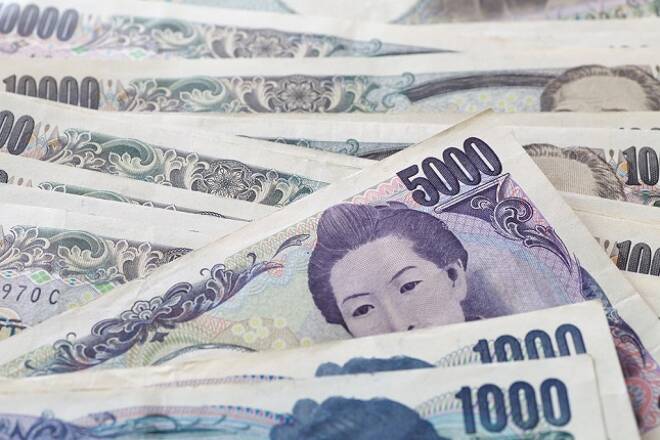Advertisement
Advertisement
USD/JPY Fundamental Weekly Forecast – Yield Surge Means BOJ May Have to Become More Flexible and Effective
By:
This week investors may begin focusing on whether the BOJ Will Step in to Cap Yields Ahead of Its Scheduled Review in March.
Central bank policymakers from Asia including the Bank of Japan and Australia escalated their fight to calm panicking markets after U.S. Treasury yields surged to their highest level in a year last week, prompting officials to respond with a mix of debt purchases and intervention threats.
Last week, USD/JPY settled at 106.459, up 1.125 or +1.07%.
However, while these moves appeared to calm the bond market, it’s unlikely to curtail a deepening divide between traders and central banks over the pace of the economic recovery. Policymakers fear the so-called reflation trade, already rippling through all markets, could seep into economies that have yet to rebound from the coronavirus shock, according to businesstimes.com.
“Reflation now needs a rein, and central banks are fighting the sharp rise in yields,” said Vishnu Varathan, head of economics and strategy at Mizuho Bank in Singapore. “Their credibility is at stake here too – if they want to maintain accommodative policy they have to act if markets look like they’re running away.”
This could be the next major issue facing the Bank of Japan this week if global yields continue to surge.
While the RBA was the first central bank to fight against the jump in yields, the Bank of Japan (BOJ) chose not to act. Instead Finance Taro Aso fired a warning shot as the benchmark yield surged to within a couple of basis points of the perceived limit of the central bank.
“It’s important that yields don’t suddenly jump up and down,” said Mr. Aso in Tokyo. “We need to make sure not to lose the market’s trust with fiscal management.”
Governor Haruhiko Kuroda later said the BOJ won’t change its yield target, and wants to keep the nation’s yield curve low.
Kuroda on Friday stressed the need to keep interest rates “stably low” to protect an economy ravaged by the COVID-19 pandemic, warning that prospects for a recovery were fraught with uncertainty.
Kuroda also said the central bank was already flexibly purchasing exchange-traded funds (ETF) under current guidelines, pointing to a recent slowdown in buying as Japanese stocks hover at multi-year highs.
“It’s important now to keep the entire yield curve stably low as the economy suffers the damage from COVID-19,” Kuroda told parliament, when asked whether the BOJ will allow long-term rates to deviate further from its 0% target.
“The BOJ has no intention of pushing up (10-year bond yields) above its target of around 0%,” he said.
For a look at all of today’s economic events, check out our economic calendar.
About the Author
James Hyerczykauthor
James Hyerczyk is a U.S. based seasoned technical analyst and educator with over 40 years of experience in market analysis and trading, specializing in chart patterns and price movement. He is the author of two books on technical analysis and has a background in both futures and stock markets.
Advertisement
